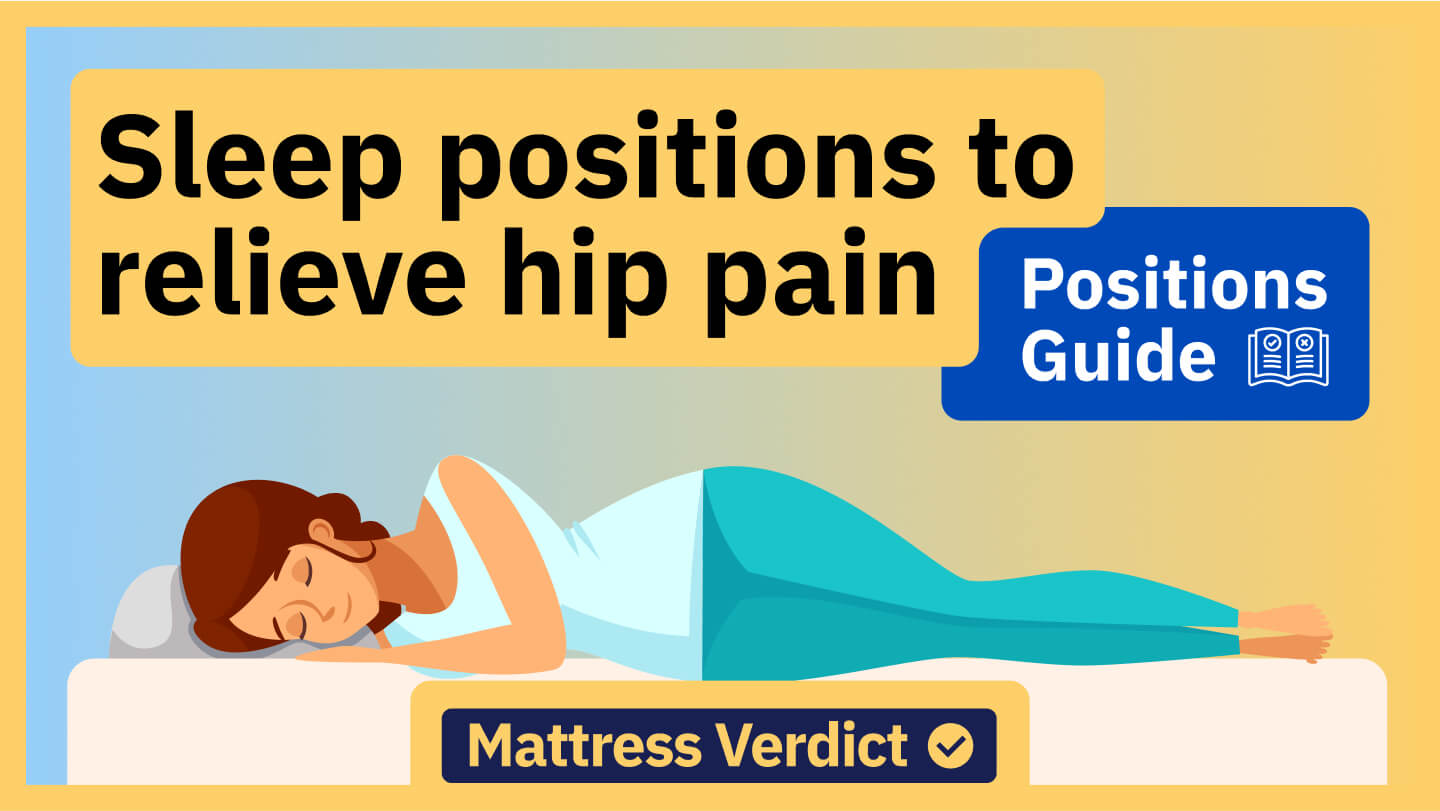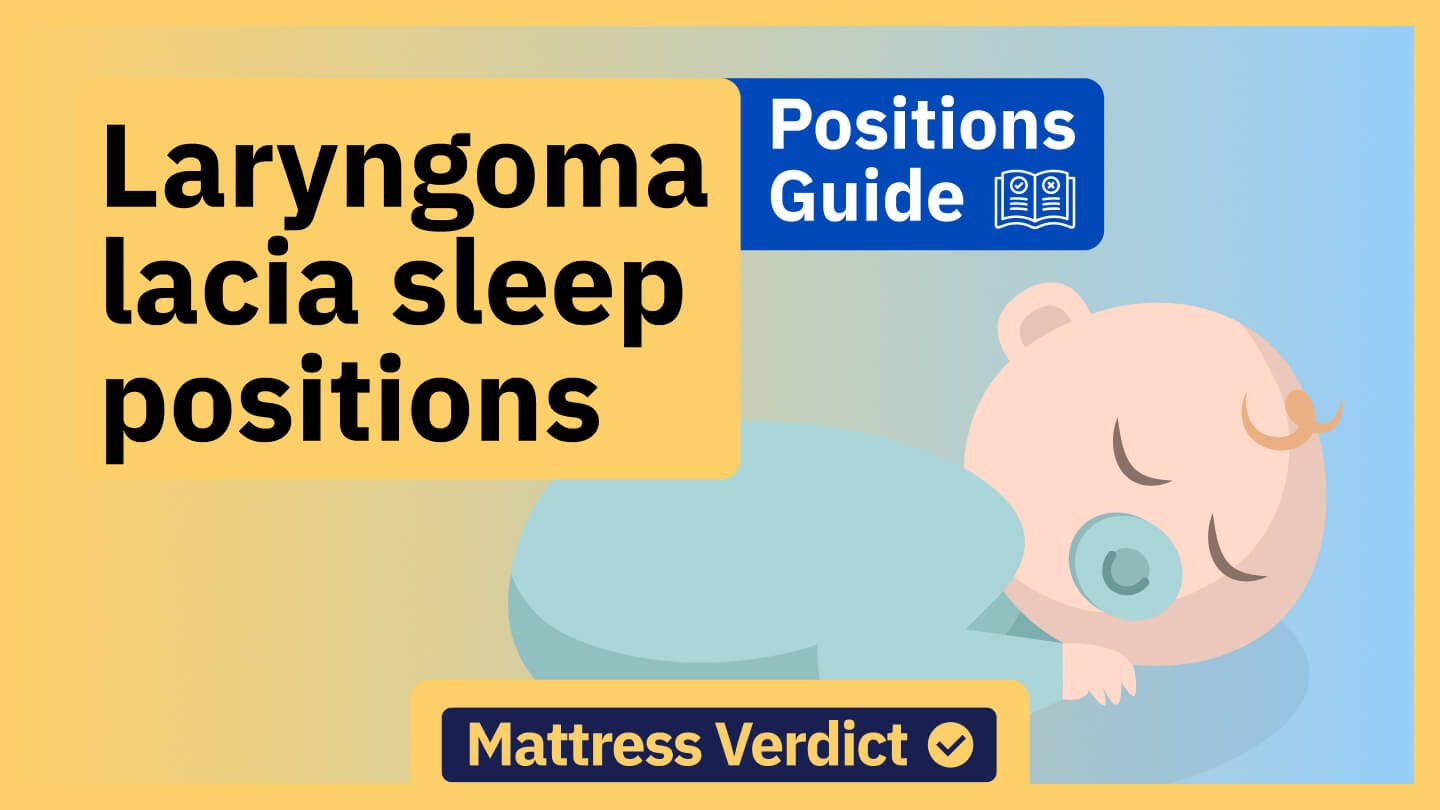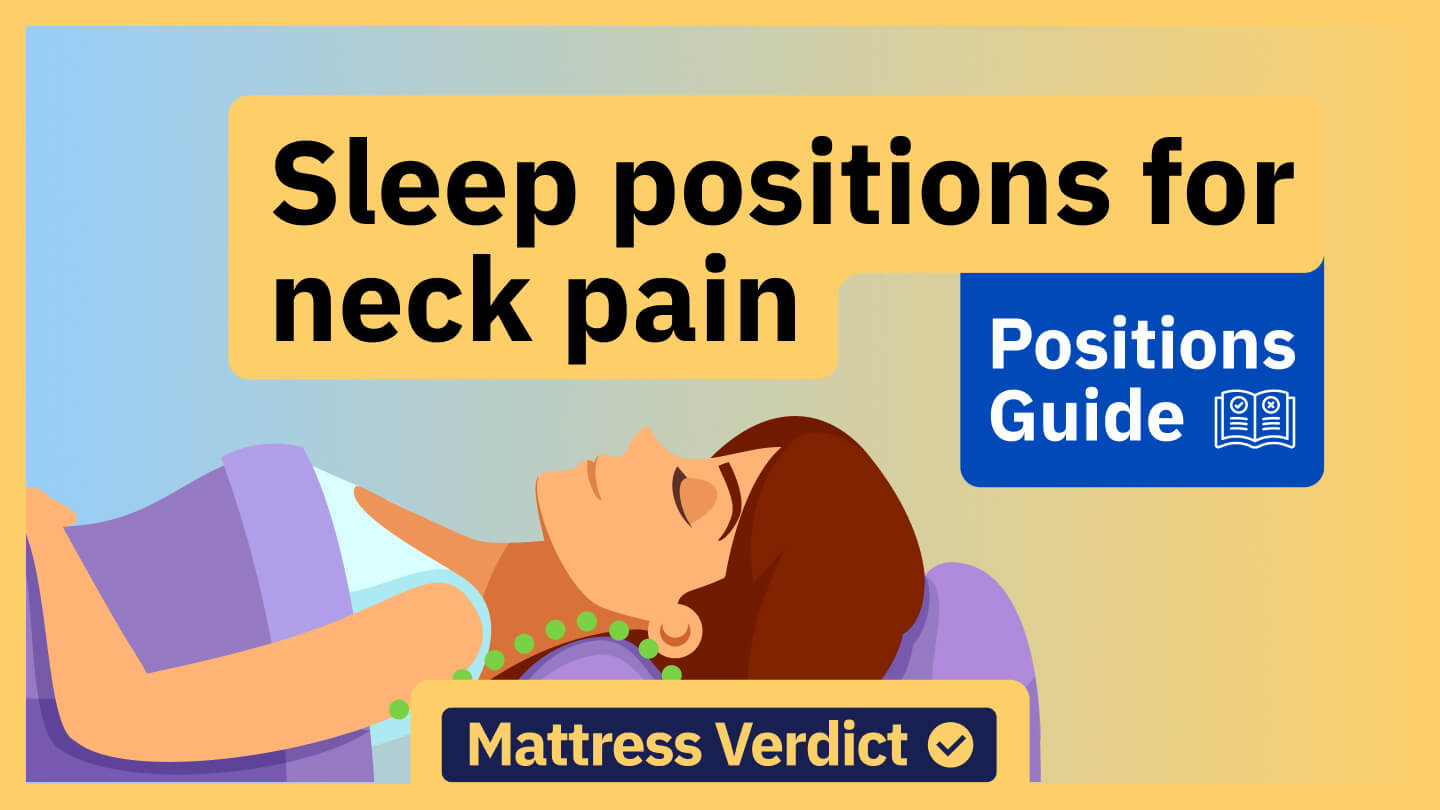

Sleeping with sciatic nerve pain is difficult. Finding a comfortable sleeping position might be impossible with pain and discomfort in your back and lower legs. However, health experts recommend certain sleep positions for sciatica to enable you to get adequate rest and cope with this condition. Mattress Verdict offers helpful tips if you are looking for the best position to sleep with sciatica.
Key Takeaways
- Sciatica makes sleeping uncomfortable.
- You can improve your sleep and cope with sciatica by using some sleeping positions.
- Sciatica could be an indication of more severe health challenges.
- You should see a doctor if symptoms persist.
How to Sleep with Sciatica Nerve Pain
Most people do not know how to lay in bed with sciatica. Sciatica nerve pain worsens during long periods of inactivity and makes sleep uncomfortable. However, you can use these sleeping with sciatica dos and don'ts to get quality sleep and wake up feeling refreshed.
Sleeping on Your Back
Laying on your back is the best sleeping position to reduce sciatica pain and discomfort. Sleeping on your back reduces the pressure on your sciatic nerve. Try sleeping with both legs elevated above your back. Place a pillow beneath your knees to elevate them and further reduce the pressure on your back. Also, use a neck pillow to ensure your spine maintains its natural position. This position is among the best sleep positions to relieve hip pain in sciatica patients.
Sleeping on Your Side
Laying on your side is the best sleep position for sciatica patients who can't sleep on their backs. Side sleeping is also recommended for patients looking for the best sleep positions for neck pain. You can fold your knees into the fetal position and place a pillow between them for more comfort. Also, set a pillow between your waist and the bed to prevent spine misalignment.
If you are wondering where to put your arms when sleeping on your side, folding them in front of your body is safer. Laying on your hands will make your arms go numb when sleeping.
Use the Right Mattress
Sleeping on the right mattress is how to sleep with sciatica nerve pain. Getting a medium-firm mattress is best for sciatica patients to sleep comfortably. Standard mattresses are inadequate for sleeping with sciatica. They will sink under your body weight and increase sciatic pain when lying down. You can take the Mattress Verdict quiz to find the ideal mattress for sleeping with sciatica nerve pain.
Causes of Sciatica
Sciatica is caused when the sciatic nerve is stressed or injured. The sciatic nerve is a continuous nerve running from the lower back to the back of the legs. It coordinates the muscles behind your knees and calves. This nerve is also responsible for sensation in your thighs, lower legs, and feet. These are the common factors that cause sciatica.
Spinal Stenosis
Spinal stenosis is caused by arthritis of the spinal cord. It narrows the backbone and puts extra pressure on the sciatic nerve. Spinal stenosis is prevalent in adults over 60 years old. It can also be caused by poor posture.
Pelvic Injury
Accidents can result in injuries to the pelvis. Pelvic injuries could affect the sciatic nerve roots in the lower back.
Slipped or Herniated Disk
According to this report, a herniated disk is the most prevalent cause of sciatica. The soft disks between the bones of the spinal cord could swell or rupture. Such an injury will irritate the sciatic nerve. Also, strenuous activities like heavy lifting could cause the soft disks to slip out of their natural position.
Tumors
Unusual growths like back or spine tumors could also put pressure on the sciatic nerve.
Piriformis Syndrome
The piriformis muscle, which is located in the buttocks, could begin to spasm. This condition is known as piriformis syndrome. Although uncommon, the piriformis syndrome can irritate the sciatic nerve and lead to pain and discomfort.
Osteoarthritis
Osteoarthritis wears down joint cartilage in the body. This condition could affect your back and hips. Affected bones will develop lumps that put pressure on the sciatic nerve.
Common Symptoms of Sciatica
Although sciatica affects people differently, the common symptoms include:
Pain
Pain in the lower back muscles is the most common symptom of sciatica. Stiff muscles cause pain and make movement uncomfortable.
Numbness
Patients often experience numbness in their thighs, lower legs, and feet. They could also experience a loss of feeling in those regions whenever they wake up.
Weakness
Sciatica patients may feel weak in one or both legs. Their legs may also feel heavy, and they could trip while walking.
Burning and Tingling Sensations
Sciatica could also cause sensations of burning in the buttocks. Feelings of tingling in the soles of the feet are also common in sciatic patients.
Alternative Remedies for Sciatic Nerve Pain Relief at Night
Sciatica nerve pain could get worse while you sleep at night. Are you looking for how to sleep with sciatica pain? Here are some alternative remedies to ease sciatic pain at night.
Pain Relievers
If you are wondering how to relieve sciatica pain in bed, you should take pain relievers like aspirin. Taking some pain relief just before bedtime will ease any discomfort while you sleep. Although you can easily purchase these drugs over the counter, it's best to get a prescription from your doctor.
Hot and Cold Treatment
Treating your back with hot and cold packs will increase sciatic nerve pain relief at night. If sleeping at night causes severe discomfort, use the hot and cold treatment before bed. Experts recommend placing ice packs on your back during the first two to three days and using heated packs afterward.
Massage
Massaging your neck and lower back before you sleep will relax tight muscles and reduce discomfort. You can use topical creams while rubbing your back to soothe your sciatic nerves before you sleep. Massages will help if you are searching for how to sleep through nerve pain.
Practice Good Sleeping Postures
Sleeping on your stomach will worsen sciatica pain. You can practice good sleeping posture by putting little balls in front of your sleeping clothes to prevent laying on your stomach. Furthermore, place pillows by your sides to prevent you from rolling onto your stomach while you sleep.
Exercise
If you are looking for how to sleep with lower back pain and sciatica, then you should exercise. You can use some light exercises to strengthen your back regions. This way, you give your spine extra support while you sleep. Gently stretch your lower back muscles at intervals. Avoid complicated exercise routines and see your doctor before adopting any exercise routines.
Reduce Bedtime
Laying in bed for too long is bad for sciatica pain. Reducing your bedtime is the best way to sleep with sciatica. You should go to bed just before you sleep.
See a Doctor
Although sciatica is expected to heal, you should see a doctor. Sciatica could be an indication of a more serious health issue. Proper medical guidance will help you find the best sleeping position for sciatica.
Frequently Asked Questions
How to sleep with sciatica pain during pregnancy?
The best way to sleep with sciatica during pregnancy is on your side. You can place a pillow between your knees to increase your comfort. Also, use a neck pillow to cradle your neck and keep your spine in a neutral position.
What makes sciatica worse at night?
In case you wonder, "What makes sciatica worse at night?" here are some pointers. Laying on your stomach puts your spine in an unnatural position and increases the pressure on your sciatic nerve. This condition worsens if you use a soft mattress that can't support your weight.
What positions should I avoid with sciatica?
Suppose you are wondering, "What positions should I avoid with sciatica?" here's how to sleep with sciatica. Avoid sleeping on your stomach. This sleeping position puts more pressure on your spine and worsens the condition. One of the best sciatica sleeping positions is lying on your side.
What is the fastest way to cure sciatica?
Medical care is the fastest way to deal with sciatica. Sciatica is often a symptom of other health challenges. You can quickly overcome sciatica by treating such difficulties.
How long does sciatica last?
Does the discomfort make you wonder, "How long does sciatica pain last?"? Health professionals expect sciatica to last between 4 to 6 weeks. While this condition might last longer than six weeks, you can cope using the right sleeping positions for sciatica.




